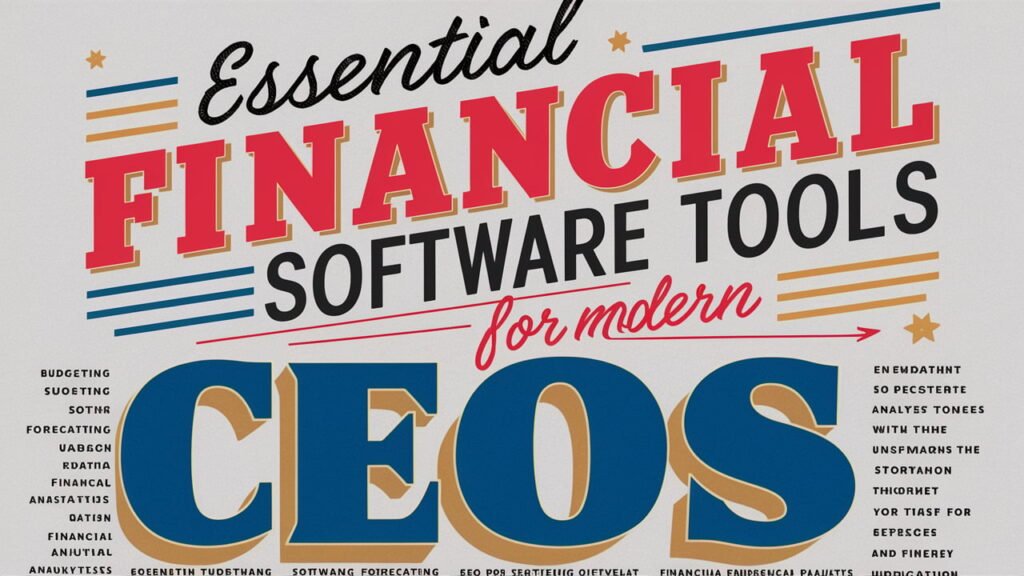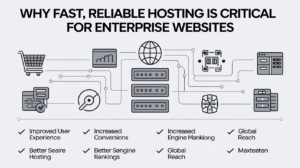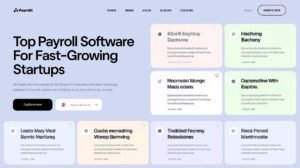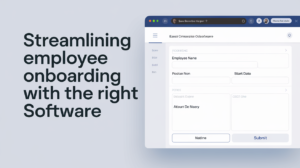Every CEO knows that efficient budgeting is a cornerstone of successful business management. With the rapidly evolving financial landscape, the role of financial software tools has become more crucial than ever. These tools not only streamline the budgeting process but also enhance strategic planning and operational efficiency.
In this comprehensive guide, we’ll explore the top financial software tools for CEOs, their unique features, and how they can revolutionize your business’s financial management.
Why Financial Software Tools Are Essential for CEOs
Managing company finances is a critical responsibility for CEOs. Financial software tools simplify complex budgeting tasks, provide real-time data analysis, and enable more accurate financial forecasting. Here’s why these tools are indispensable:
- Efficiency: Automating budgeting processes reduces manual errors and saves time.
- Accuracy: Real-time data ensures you have the most up-to-date financial information.
- Insightful Analysis: Advanced analytics help in making informed strategic decisions.
- Scalability: Suitable for businesses of all sizes, from startups to large enterprises.
Top Financial Software Tools for Efficient Budgeting
Let’s explore some of the top financial software tools every CEO should consider for efficient budgeting and strategic planning:
1. QuickBooks Online
Overview
QuickBooks Online is a market-leading financial management tool that offers robust budgeting, invoicing, and expense tracking features, making it ideal for small to mid-sized businesses.
Key Features:
- User-Friendly Dashboard: Provides a clear overview of financial health.
- Automated Invoicing: Saves time by automating manual invoicing tasks.
- Expense Tracking: Monitors all business expenses in one place.
- Customizable Reports: Generates detailed financial reports tailored to your business needs.
2. Xero
Overview
Xero is a cloud-based accounting software known for its ease of use and ability to integrate seamlessly with other business tools.
Key Features:
- Real-Time Cash Flow: Keep track of your cash flow with up-to-date financial data.
- Bank Reconciliation: Automatically imports and categorizes bank transactions.
- Multi-Currency Support: Easily manage finances in multiple currencies.
- Third-Party Integrations: Connects with over 800 business apps for enhanced functionality.
3. Sage Intacct
Overview
Sage Intacct is a powerful financial software tool designed for larger enterprises seeking comprehensive financial management solutions.
Key Features:
- Advanced Financial Reporting: Offers deep insights through real-time reporting.
- Scalable Infrastructure: Grows with your business without compromising performance.
- Comprehensive Budgeting Tools: Includes multi-dimensional budgeting and forecasting features.
- Compliance Management: Ensures that your business meets regulatory requirements
4. FreshBooks
Overview
FreshBooks is especially popular among freelancers and small business owners for its intuitive interface and efficient invoicing features.
Key Features:
- Time Tracking: Captures billable hours and integrates them into invoices.
- Client Management: Streamlines client communication and billing.
- Expense Management: Automatically imports expenses from bank accounts.
- Mobile App: Access your financial data on the go via a robust mobile app.
5. Microsoft Dynamics 365
Overview
Microsoft Dynamics 365 offers a comprehensive suite of ERP and CRM applications, perfect for large corporations seeking an all-in-one solution.
Key Features:
- Integrated Business Operations: Combines financial management with other business processes.
- Predictive Analytics: Leverages AI to provide predictive financial insights.
- Customizable Workflows: Tailors the software to your specific business processes.
- Global Support: Provides multi-language and multi-currency support for international operations.
Key Considerations When Choosing Financial Software Tools
When selecting the best financial software tools for your business, consider the following factors to ensure you make an informed decision:
- Scalability: Opt for a tool that grows with your business.
- Integration Capabilities: Ensure the software integrates smoothly with other tools you use.
- User Experience: Choose software that is user-friendly and intuitive.
- Cost-Effectiveness: Balance the features offered with your budget.
- Security: Prioritize tools with robust security features to protect sensitive financial data.
Benefits of Implementing Financial Software Tools
By implementing the right financial software tools, CEOs can enjoy numerous benefits, including:
- Improved Financial Accuracy: Reduces manual errors and ensures precise financial data.
- Enhanced Efficiency: Automates repetitive tasks, saving time and boosting productivity.
- Better Financial Visibility: Provides real-time insights into financial performance.
- Streamlined Processes: Simplifies complex financial workflows.
- Strategic Decision-Making: Offers data-driven insights for more informed decisions.
Conclusion
Financial software tools are indispensable for CEOs aiming to enhance their budgeting efficiency and strategic planning. By selecting the right tools, businesses can achieve greater financial accuracy, operational efficiency, and scalability.
Whether you’re a small business or a large enterprise, the financial software tools highlighted in this guide will help you optimize your budgeting processes and drive your business towards success. For more insights on financial management and software tools









